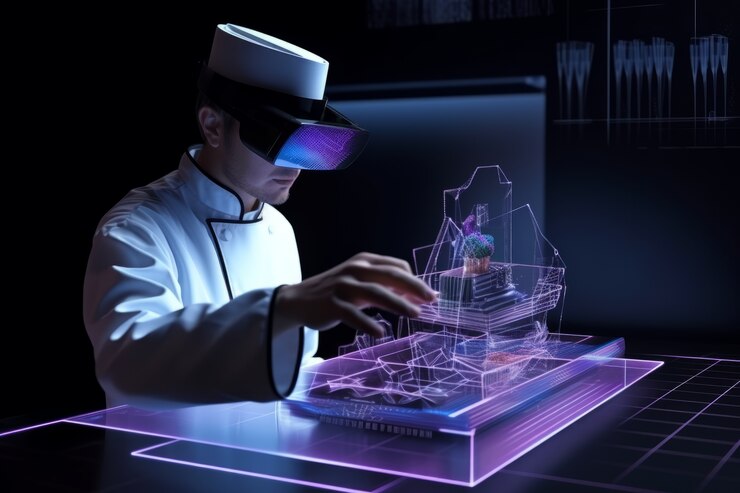
Few inventions in the rapidly changing field of technology have captivated the interest and promise of Intelliscient technologies. These Intelliscient technologies, which combine omniscience with intelligence, have the potential to transform several sectors and alter how we use technology entirely. This article thoroughly overviews the development, uses, advantages, difficulties, and prospects of Intelliscient technology.
The Evolution of Intelliscient Technologies
From AI to Intelliscient: A Historical Journey
Intelliscient Technologies’ journey starts with artificial intelligence (AI). Early AI systems were built for specific tasks like chess or mathematical problems. They evolved to handle more complex tasks, leading to machine learning and deep learning algorithms.
As AI matured, the concept of intelliscient technologies emerged. Unlike traditional AI, intelliscient systems possess a broader understanding and can analyze vast amounts of data from multiple sources to provide comprehensive insights. This evolution marks a significant shift from task-specific intelligence to a more holistic and omniscient approach.
Milestones in Intelliscient Development
There have been several important turning points in the history of Intelliscient technologies. One crucial step forward was the creation of IBM Watson, which showed how AI can understand and process natural words. Another significant change is the rise of neural networks, which have made it possible for intelligent systems to learn and change from data in impossible ways.
Real-World Applications
Healthcare: Precision Medicine and Diagnosis
Thanks to intelligent technology, precise medicine, and accurate diagnostics are revolutionizing the healthcare sector. For example, IBM Watson Health provides individualized treatment suggestions by analyzing large medical databases. This capacity lowers the time and expense of conventional diagnostic techniques while improving patient outcomes.
Finance: Fraud Detection and Personalized Banking
Intelligent technologies are transforming customized banking and fraud detection in the financial sector. By reviewing commercial loan agreements, JPMorgan Chase’s COIN system saves 360,000 hours of human labor per year. To provide customized financial services and recommendations, sophisticated algorithms evaluate consumer data.
Benefits and Challenges
Advantages of Intelliscient Technologies
The adoption of intelliscient technologies offers numerous benefits across various industries. These include:
- Boosted Efficiency: Automating repetitive tasks and optimizing processes enhances operational efficiency.
- Better Decision-Making: Intelliscient technologies deliver comprehensive insights for informed decisions.
- Cost Reduction: Automation and predictive capabilities cut costs linked to manual labor and downtime.
Potential Drawbacks and Ethical Considerations
Despite their advantages, intelliscient technologies also pose challenges and ethical considerations:
- Job Displacement: Automation may lead to job losses, urging workers to learn new skills.
- Data Privacy Concerns: The broad use of data highlights privacy and security issues.
- Need for Regulation: Ethical use of intelligent technologies requires regulatory solid frameworks.
Addressing the Challenges: A Path Forward
To deal with these problems, everyone involved needs to work together to find answers that balance new ideas with moral concerns. Investing in programs that teach workers, establishing strict data privacy rules, and making clear rules are all essential steps toward responsible adoption.
Future Outlook
Emerging Trends in Intelliscient Technologies
The future of intelliscient technologies is promising, with several emerging trends on the horizon:
- Explainable AI: As AI systems become more complex, there is a growing demand for transparency and explainability. Explainable AI aims to make AI decisions more understandable to humans.
- Symbiotic Human-Machine Relationships: The future will likely see closer collaboration between humans and machines, with each complementing the other’s strengths.
Predictions for the Future of Intelliscient Systems
Industry experts predict that intelliscient technologies will continue to evolve, driving innovation across various sectors. Sundar Pichai, CEO of Google, believes that “AI is one of the most important things humanity is working on.” Fei-Fei Li, Co-Director of Stanford’s Human-Centered AI Institute, emphasizes ethical considerations, stating, “AI can help solve many of the world’s problems, but we must ensure it is developed and used responsibly.” Andrew Ng, a leading AI researcher, predicts that “AI will transform every industry, just as electricity did.”
Conclusion
Intelligent technologies are revolutionizing markets and expanding horizons. They hold immense potential for tackling ethical issues, increasing productivity, and making better decisions. Unlocking the full potential of intelligent technologies will require us to embrace them with a balanced and ethical approach as we navigate the future.
Are you prepared to investigate the revolutionary potential of intelligent technologies? Remain aware, remain involved, and ride the wave of innovation reshaping our world.